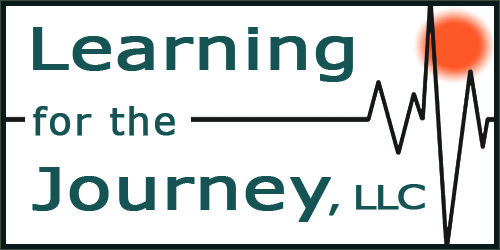Are You Really “Connected”?
When asked, most of us would describe ourselves as being connected. We have our smart phones, Internet, social media, and hopefully a network of colleagues, friends, and family. However, in the quiet moments of reflection, most of us will also admit that there are times when we feel emotionally isolated, overwhelmed by being accessible and on-call 24/7, and wearied by the all-to-often shallowness of social media. Connectivity in the modern world is often a mixed blessing.
Recently I was asked to talk about the "Power of Connection.” In my research for the presentation, I came to think about connections in new ways and I would like to share those insights with you because, judging by audience feedback, this material struck a nerve for many.
Three Types of Connection
There is a tremendous amount of research, opinion, discussion, and just noise about the topic of connection. As I sifted through the various sources, I came to think of connections within three larger categories i.e., connection with ourselves, connection with others, and connection with the larger world.
Connections with ourselves
Well-being – connecting with who we are and what we need to flourish
Learning – connecting new knowledge with old for greater insight
Neurological – connecting neurons for health and habit
Biological – connecting with our past and our future through DNA
Connections with others
Face-to-face
Through technology
Intimate, family, friends, … Facebook
Connection with the larger world
Nature
Society
Culture
Humanity
Spirit
Connection with Self
If you are disconnected from yourself, you can’t build strong, meaningful connections with others and the world. You cannot give what you do not have!
Going through my library looking for source material, I found a yellowed paperback first published in 1998 by Cheryl Richardson entitled "Take Time for Your Life". I remember buying that book at a complex and challenging point in my life and have revisited several times along life's path. In the margin on a self-assessment of life-balance, I had written:
“I am now so focused on work that 1) relationships are secondary; 2) health (emotional and physical) are suffering; 3) fun feels like cheating; 4) there are no contributions beyond work and money to church. I am tired, lonely, disconnected. I do not like this – no, I hate this feeling. I am so objectively blessed and still wallowing in the shallows.”
As I presented this quote to the audience of accomplished women business owners and leaders, there was a collective groan, especially about "fun feels like cheating." While our individual life details vary, this feeling of being tired, lonely, and disconnected, in spite of the many blessings of our lives, is an all too common experience.
One of the reasons that I continue to come back to Cheryl Richardson's work is her straight-forward reminder:
“You have a choice about how you live your life, about how you spend your time. You can either continue with the way things are and hope it gets better, or you can do something about it.”
Connection with Others
The opposite of connectedness is social isolation (not solitude). Research shows that …
Neglecting to keep in close contact with people who are important to you is as least as dangerous to your health as a pack-a-day cigarette habit, hypertension, or obesity. (Susan Pinker, The Village Effect: How Face-to-Face Contact Can Make Us Healthier and Happier (2014) and TED 2017)
People with few social ties are 2 to 3 times more likely to suffer from major depression
Connections support happiness and come in many forms i.e., emotional, tangible, appraisal, informational, and companionship
For real connections, people must feel seen, heard, and valued; they must give and receive without judgement; and they derive sustenance and strength from the relationship (Brene Brown, The Gifts of Imperfection, 2010)
As a practical matter, not all connections to others are created equal and that is OK. As the spiritual sources remind us, "test everything and retain what is good" (1 Thessalonians 5:21). Our challenge is to nurture the good connections, prune the unhealthy ones, and don’t confuse showy annuals with evergreens.
Connections With the World
Just connecting with self and “friends and family” are essential, but not sufficient for meaningful work and contribution to the world. As researcher and author Brene Brown say in her wonderful book, Braving the Wilderness: the Quest for True Belonging and the Courage to Stand Alone (2017):
“The connection – the spirit that flows between us and every other human in the world – is not something that can be broken; however, our belief in the connection is constantly tested and repeatedly severed. When our belief that there’s something greater than us, something rooted in love and compassion, breaks, we are more likely to retreat to our bunkers, to hate from afar, to tolerate bullshit, to dehumanize others, and ironically, to stay out of the wilderness.”
If you are not familiar with Brene Brown's clear and thoughtful work, you might consider listening to her TED talk, on "The Power of Vulnerability." With its 51.3 million views, it is a powerful indication of our need for clear voices for connection.
Final Thoughts
To truly connect with ourselves, others, and the larger world requires intentionality, courage, and vulnerability. Well-chosen and well-tended connections contribute to our health and well-being and enable us to live meaningful lives of contribution. Connections are not just networking. Connections are human-to-human, not just B2B. Finally, connections are essential the quality of our entire life, not just our professional lives.

